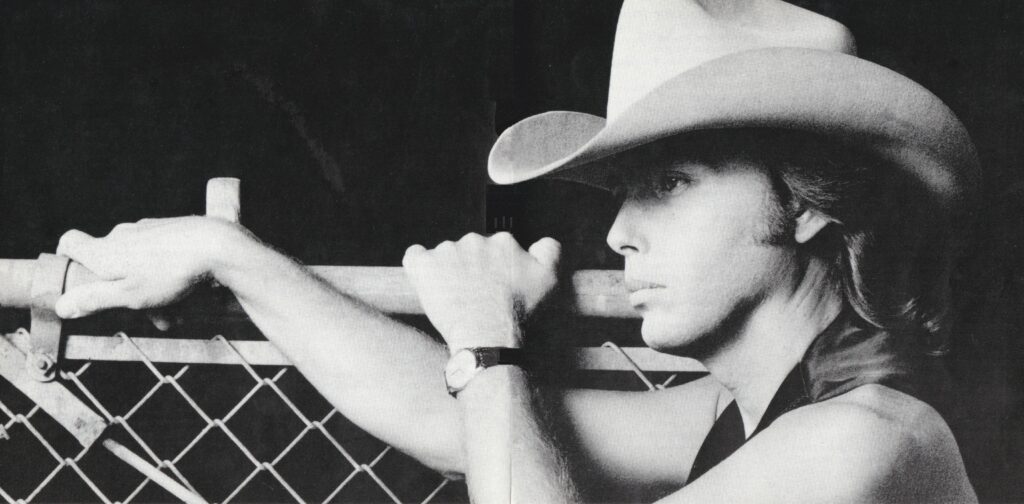
A stop-time prayer for the brokenhearted — “Stop the World (And Let Me Off)” is the moment grief asks for mercy, and a honky-tonk answers with a slow, knowing nod.
Right up front, the essentials. Dwight Yoakam cut “Stop the World (And Let Me Off)” for his odds-and-ends collection Dwight’s Used Records (New West, 2004), where it opens the album like a lights-down hush before last call. Written in the 1950s by Carl Belew (with credit also to W. S. Stevenson, a pen name for Four Star Records executive Bill McCall), the song had a life long before Yoakam: Johnnie & Jack took it to No. 7 on Billboard’s country chart in early 1958, Waylon Jennings made it his first Top-40 country hit at No. 16 in 1965, and Susan Raye reached No. 18 in 1974 (No. 30 in Canada). Yoakam’s version wasn’t worked as a radio single; it’s a reverent, lived-in cover—3:08 of Bakersfield-steeped ache—produced in his long partnership with Pete Anderson.
That lineage matters, because it explains why the piece fits Yoakam like a well-worn jacket. The song’s roots run through both Nashville and Bakersfield: Belew’s original sat in the Four Star orbit, Chet Atkins produced Johnnie & Jack’s hit, Atkins also shepherded Waylon’s 1965 cut, and later Buck Owens produced Susan Raye’s version at Buck Owens Studios in Bakersfield. Yoakam has spent a career threading that exact seam—Nashville polish balanced against West-Coast twang—so when he sings this tune in 2004, you can hear both cities in the room.
The song itself is a plainspoken miracle of economy. One line is the whole story: stop the world; I can’t stand to ride it another second without the one I lost. Country music has always dignified that impulse, and Yoakam leans into it without theatrics. The arrangement walks instead of struts—Telecaster phrases that glow more than bite, a rhythm section that leaves air around the voice, and a tempo that lets each syllable land like a scuffed boot on an empty sidewalk. It sounds like a letter written past midnight and never mailed. On Dwight’s Used Records it’s placed first for a reason: it sets the temperature for a set of borrowed songs and stray collaborations gathered from years of work outside his core albums, and it announces the record’s credo—feel first, flash never.
To older ears, Yoakam’s reading carries an extra shade: resignation without surrender. He doesn’t beg the lover back; he files a petition with time itself. That’s a grown-up grief—the kind that comes after you’ve already tried apologies, bravado, and distractions. Listen to the way he stretches the title phrase; the vowel hangs there like a held breath before a hard truth. It’s the sound of someone discovering that the world’s indifference can feel like cruelty when your own house has gone quiet.
The backstory of the tune adds texture to that feeling. Belew first sent the song into the world in 1957/58; Johnnie & Jack’s hit cemented it, and Waylon’s 1965 version—cut for his debut LP Folk-Country—marked a young singer trying to make room for himself inside Nashville’s countrypolitan frame. Nearly a decade later, Susan Raye’s Bakersfield cut—tracked in February 1974 with Buck Owens at the board—showed how naturally the lyric sat among Telecasters and hardwood floors. Yoakam’s 2004 take sits at the end of that line like a stamp of gratitude: a modern heir tipping his hat to every hand that kept the song alive.
Meaning, as heard here, is modest and exact. The narrator isn’t angry at fate; he’s dizzy. “Stop the world” isn’t melodrama—it’s an adult fantasy of stillness, a wish to set all the clocks back to the last ordinary hour when life still made sense. That’s why this old lyric ages so well: the request is impossible, but the feeling never goes out of date. Yoakam’s voice—slightly duskier than in his early hits—makes that impossibility sound almost practical, as if a good band and a steady beat might hold the room steady while the heart regains its footing.
If you keep a ledger of facts, they’re simple and sturdy. Songwriters: Carl Belew and W. S. Stevenson (Bill McCall). First hits: Johnnie & Jack (No. 7, 1958); Waylon Jennings (No. 16, 1965); Susan Raye (No. 18 U.S., No. 30 Canada, 1974). Dwight Yoakam’s version: Dwight’s Used Records (2004), track 1, 3:08, produced with longtime collaborator Pete Anderson, issued by New West Records—a compilation of non-album tracks, covers, and collaborations from across the years. No chart campaign; just a keeper.
Return to it now and you’ll hear what keeps the song traveling. Beneath the twang is a simple petition any seasoned heart recognizes: let the spinning stop—just for a moment—so I can find my feet. Yoakam doesn’t promise that the world will listen. He does something better. He stands in the doorway of a tune that’s older than most of us, sings it like a witness, and holds the room steady long enough for you to breathe. That, in the end, is what the best country records offer—not solutions, but company. And “Stop the World (And Let Me Off)”, in Dwight Yoakam’s hands, keeps that promise with a quiet, durable grace.